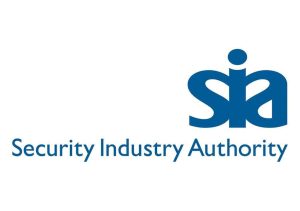What are the standards of behaviour for an SIA Security officer?
The Security Industry Authority (SIA) has set out standards of behavior for individuals working in the private security industry in the UK. These standards are designed to ensure that security officers operate in a professional, competent, and ethical manner, and to promote public safety. The main standards of behavior for an SIA security officer are as follows:
- Professionalism: Security officers must conduct themselves in a professional manner and demonstrate a commitment to their work. This includes being punctual, dressed appropriately, and treating all individuals with respect and dignity.
- Communication: Security officers must be able to communicate effectively with members of the public and colleagues, and be able to deal with difficult situations in a calm and controlled manner.
- Confidentiality: Security officers must maintain confidentiality and not disclose any confidential information without good reason.
- Duty of care: Security officers must take reasonable steps to ensure the health, safety and welfare of themselves and others.
- Use of force: Security officers must only use force when necessary and in proportion to the threat. They must also be able to justify their use of force if required.
- Report writing: Security officers must be able to produce clear and accurate written reports, including incident reports, as required.
- Knowledge of legislation: Security officers must have a good understanding of relevant legislation, including the Private Security Industry Act 2001, and the Human Rights Act 1998.
- Ethical conduct: Security officers must conduct themselves in an ethical manner and not engage in any conduct that may bring the security industry into disrepute.
- Continuous professional development: Security officers must maintain their skills and knowledge and engage in continuous professional development.
The SIA requires individuals working in the private security industry to adhere to these standards of behavior and to operate in a professional, competent, and ethical manner. Failure to do so may result in disciplinary action, including the loss of an SIA license.
The private security industry in the UK is a significant sector, employing thousands of people and contributing to the country’s economy.
What can happen if the code of behaviour is not followed?
If a Security Industry Authority (SIA) licensed security officer fails to follow the standards of behaviour set out by the SIA, they may face disciplinary action. The specific consequences will depend on the nature and severity of the breach, but could include:
- Suspension or revocation of license: In serious cases, the SIA may choose to suspend or revoke the security officer’s license, making it illegal for them to work in the private security industry.
- Reprimand or caution: In less serious cases, the SIA may issue a reprimand or caution to the security officer, reminding them of their obligations and the consequences of failing to follow the standards of behaviour.
- Fine: The SIA may impose a fine on a security officer who has failed to follow the standards of behaviour.
- Legal action: If a security officer’s conduct is found to be criminal in nature, they may face criminal prosecution and legal action.
- Disciplinary action by employer: If a security officer’s conduct is in breach of their employment contract, their employer may choose to take disciplinary action, which could result in termination of employment.
It is important for security officers to understand and adhere to the standards of behaviour set out by the SIA, as failure to do so can result in serious consequences and may damage their reputation and career prospects. The SIA takes breaches of the standards of behaviour very seriously and will take appropriate action to ensure that security officers operate in a professional, competent, and ethical manner.
The private security industry in the UK is a significant sector, employing thousands of people and contributing to the country’s economy.
